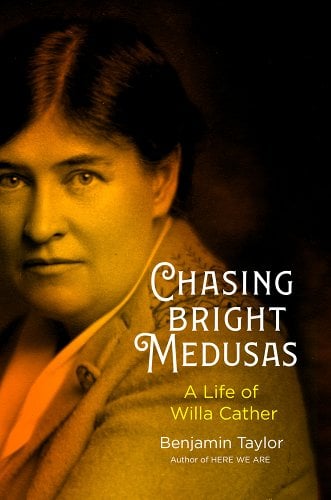In the course of the first year on the Divide—as the high ground between the Republican and the Little Blue Rivers and between the Little Blue and the Platte are known—she thought she’d die of homesickness for northern Virginia with its rolling hills and temperate weather. She and the new land— “as naked as the back of your hand”—had it out before she came to love it. Then the desert place became home.
The babel of Scandinavians and Central Europeans and Frenchmen and more captivated her. In this unlikely place she became a citizen of the world. She would say in a 1913 interview: “We had very few American neighbors. They were mostly Swedes and Danes, Norwegians and Bohemians. I liked them from the first and they made up for what I missed in the country. I particularly liked the old women; they understood my homesickness and were kind to me…These old women on the farms were the first people who ever gave me the real feeling of an older world across the sea. Even when they spoke very little English, the old women somehow managed to tell me a great many stories about the old country. They talked more freely to a child than to grown people…I have never found any intellectual excitement any more intense than I used to feel when I spent a morning with one of these old women at her baking or butter-making. I used to ride home in the most unreasonable state of excitement; I always felt…as if I had got inside another person’s skin.”
Farm life in rural Webster County did not suit Charles Cather, and after eighteen months he moved his family from the Divide to Red Cloud proper. Having raised sheep in Virginia, he seemed to have found raising hogs and cattle and breaking the soil in Nebraska more than he could handle. In Red Cloud he established a farm loan, insurance, and real-estate concern and made a go of it. That was the autumn of 1884, the year Willa turned eleven. The town would be transubstantiated into Hanover in O Pioneers!, Moonstone in The Song of the Lark, Black Hawk in My Ántonia, Frankfort in One of Ours, Sweet Water in A Lost Lady, and Haverford in Lucy Gayheart. Thus Cather kept faith with the genius loci of her youth.
Her parents purchased a story-and-a-half frame house on the southwest corner of Third and Cedar, and crowded their growing family of children—Willa, Roscoe, Douglass, Elsie—and Mrs. Cather’s mother, and a servant girl, into it. Three more children, John, Jessica, and James, were shortly to follow.
She and the new land— “as naked as the back of your hand”—had it out before she came to love it.
